Welcome to Edinburgh Traumatology
A specialist service dealing with Complex PTSD, Adverse Childhood Experience, Adult Trauma and Abuse, Trauma and Grief. Based in Edinburgh City Centre.
Specialist Integrative Trauma Psychotherapy & Counselling
Welcome, and thank you for visiting Edinburgh Traumatology.
My name is Stuart Morgan-Ayrs and I am an integrative consultant psychotherapist and traumatologist providing specialist trauma therapy support in Edinburgh City Centre. I also offer counselling and therapy online, using Google Meetings. You can read more about me on the Biography page.
Trauma is a painful and multi systemic mind -body - spirit - relationship condition that holds people back, prevents them from truly living their lives to the full, and leaves them potentially with a wide range of psychological, physical, social and spiritual problems which often show up as additional diagnosis.

I work with people from all walks of life and backgrounds (I am actively LGBT* informed and trained), coming to me with a diverse range of problems. As a fully-qualified integrative and multi modal clinical psychotherapist and clinical analytical hypnotherapist. I am a Fellow of the National Association of Counsellors Hypnotherapists and Psychotherapists, and abide by their code of ethics. I am a Fellow of the Royal Society of Public Health. I am registered for complementary heath provision with the CTHA and IAOTH. NACHP, BAThH, NCH & CTHA are all validation organisations for the CNHC who hold a PSA AR (Professional Standards Authority Accredited Register) and I am registered under Hypnotherapy. (This is an official UK regulation system).
If you suffer from Complex trauma, Adverse Childhood Experiences, Sexual trauma or abuse, Domestic Violence Trauma, Grief based trauma or any other trauma related condition, then I provide a specialist service dedicated to evidence and research based, yet customised personal therapy. I have completed post graduate, post qualification certification in clinical trauma treatment (CCTP I), complex clinical trauma treatment (CCTP II), Complex Trauma clinical Certification (CCTS-I) and specialist hypnosis and neurology based mind-body trauma treatment. These advanced certifications, based on the work of the leading world experts in trauma are combined with my 30 years of professional experience as a practitioner. (est Sept 1993)
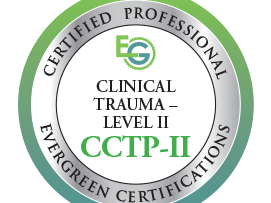
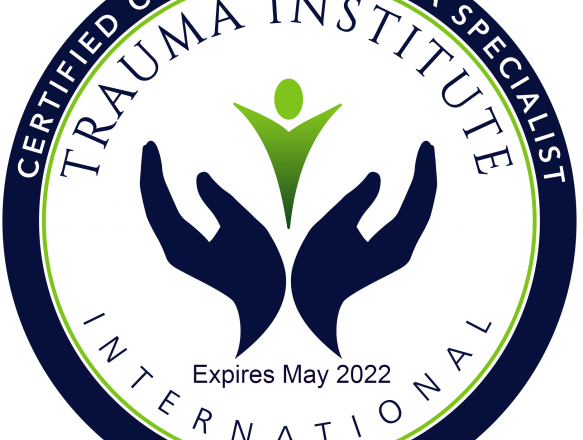
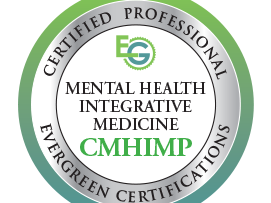
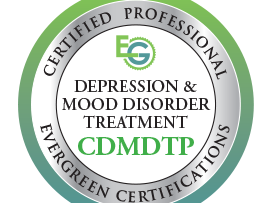
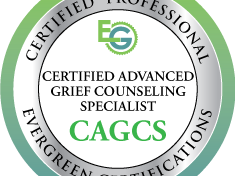
HOW CAN TRAUMA PSYCHOTHERAPY HELP?
Trauma can stem out of either painful events like harm, abuse, loss and danger, or the lack of nurturing elements such as unconditional love, positive support, acceptance, recognition of identity and safety. In practice many people experience both at the same time or in phases.
Adverse Childhood Experiences such as neglect, sexual or physical abuse, or the present of grief, loss or disruption are not just traumatic experiences. They become part of a complex web of problems as they influence perception, behaviour, understanding and development, leading to outcomes that effect us inside with mental health and physical symptoms, and outside with issues around relationships and fitting in.
Not experiencing full acceptance as a child or young person can often lead to other social issues other than those with a clear diagnosis, such as issues around identity, perfectionism, self image, body image, self worth, achievement, and either Under-controlled or Over-controlled Personalities.
Adult trauma is often experienced by people with either difficult developmental childhoods so that the sufferer is vulnerable to manipulation or abuse, or conversely those who had very safe childhoods and who "never saw it coming" until it was too late. Sadly common examples of adult trauma include psychological abuse, manipulation including "gas lighting", sexual abuse, and physical violence. Other forms of emotional harm can include being manipulated into thinking you are at fault or not of sane mind, discriminated against and financially manipulated.
People who have suffered trauma often have other mental health diagnosis, a range of physical ailments, social issues, interpersonal issues and have often seen other therapists for specific ailments in the past, but without the joined up integrative approach needed to address the underlying complexity of trauma. Indeed some forms of therapy are contra indicated with complex trauma, and these and certain "self help" books or other media can actively make things worse by aggravating existing patterns and coping mechanisms, or non therapeutically indulging in exposure therapy, which does not help in complex trauma.
Please note that Complex Trauma Treatment is not the treatment of physical Brain injury or Insult.
My approach to therapy is an integrative one. I use the tried and tested three stage patient approach to complex trauma:
Stabilisation:
Enable a sense of calmer well being
Personal Exploration:
Reattachment of parts, Somatic Processing, Intereospection: all enabling understanding and long term change
Thriving:
Building a new life and narrative after the pain and trauma has been dealt with
I am cross trained and qualified in a range of related therapy models including:
Mindfulness, Hypnotherapy, ACT, DBT, RO DBT, MBCT, CBT, Relational EMDR, Integrative Medicine and Coaching, to Psycho-Education, Nutritional support.
I also have post graduate and post qualification advanced mental health and Specialist treatment certifications for Anxiety, Depression, Grief, Attention Disorders & Mood Disorders.
Full referencing of therapy models and claims is provided at our main site, also providing cross referencing where appropriate to NICE guidelines. Main site HERE
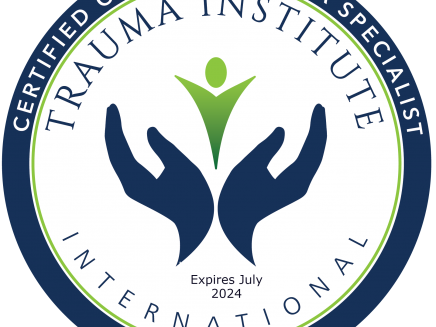
Why is trauma so complicated to treat successfully?
Part of the problem is that it is not just something that can be addressed with talking therapy alone. Trauma is held in both implicit and explicit memory and to access areas of the trauma it is vital to use mind-body or somatic work; Talking therapy alone does not achieve this. Also because of the knock on effects of trauma, well being, habits, physical well being and interpersonal relationships all need support too. Stuart has specialist training in integrative medicine approaches so that he can advise and psycho-educate on related fields of mindful practice, diet and nutrition, activities and self help.
Fortunately science is now our friend in dealing with trauma and modern advances in neurology. polyvagal theory and interpersonal neurobiology have both added to the methods we have available, and breathed new life into traditional methods like yoga, chi gung, shamanism and traditional medicines by giving clear scientific explanations understandable to western clients.
As well as extensive CPD training in polyvagal theory and neurology for practitioners, I (Stuart) am completing comprehensive advanced post graduate training in Interpersonal NeuroBiology with Dan Siegal, Professor of Psychiatry at UCLA, via a 6 month cohort via the Mindsight Institute.
A PROBLEM SHARED... with someone who knows
As with over 80% of Traumatologists according to a recent poll by a leading specialist organisation, Stuart has experienced Complex PTSD himself and recovered from it. You will not being talking to an academic or clinican who has no understanding or experience, but to someone who has been through the patient process of recovery. We strongly believe that basic counselling is not enough for trauma recovery, and the evidence shows that because of how memory is formed, talking therapy alone does not effectively undo the damage of trauma. Our service is integrative and addresses mind, body, well being and recovery.
Live life fully, to your true potential
Trauma causes us to create coping mechanisms, survival patterns and ways of "surviving and getting by" that help us through the crisis or trauma period, but leave us ill equipped to live life fully afterwards. All of these learned patterns helped you to get through it and be here now today. You have done well to survive, now you can learn to heal and live fully.
CONTACT ME
Feel free to contact me if you have any questions about how trauma therapy works, or to arrange an initial assessment. Initially you will need to complete online assessment forms, and then attend an assessment session. This enables us to discuss whether you and the service are a good match or whether you need a different service.
I do not discuss cases by phone since any chat would be speculative and thus unprofessional. It is also not the best use of my time when I need to focus on helping my clients. I am happy to discuss any queries or questions you may have prior to arranging an initial appointment with a brief email discussion.
When you first contact me I will begin by providing comprehensive information on the service, how it works, terms and conditions, cancellation policy, what to expect and a complete breakdown of my charges for different income brackets. If you decide you wish to proceed, then you can complete the assessment forms - links provided in the information.
All enquires are usually answered within 24 hours, and all contact is strictly confidential and uses secure email services.
During Holiday periods short delays may apply, usually an auto-response will inform you of this.
Find out more by reading my Data Privacy Policy, link in the information provided to enquiries.
MY LOCATION
I work from my own clinical office in a Business Centre right in the centre of Edinburgh. During COVID restrictions there is no reception support. COVID hygiene training and measures have been implemented for safe practice. The offices are on South St Andrew's Street, just off of Prince's Street, and therefore on Train, Bus and Tram routes.
FEES & AVAILABILITY
Sessions are 55 minutes unless double sessions are specifically arranged. Sessions are either in person in Central Edinburgh, or online using Google Meetings. The service is provided from the Scotland based Edinburgh location for business and legal purposes, and this is the case wherever the participants of any virtual meeting connect from.
Fees are itemised in the information files and are based on your income level. Cancellation policy applies and a link is provided. Booking sessions after the assessment session means being responsible for a regular time slot. Payment by cash, PayPal (including by major credit and debit cards) or BACS (preferred).
HMRC registered Sole Trader Partnership. ICO registered.
All references and NICE cross referencing at our main site
Thank you for Consulting a Specialist Complex Trauma Service
It is not easy to reach out and seek support, especially with something as deep rooted and serious as trauma. Thank you for being brave and taking this first step. Thank you also for supporting a specialist service, dedicated to helping to provide specialist clinical treatment and support in Edinburgh and online for Complex PTSD, Childhood Abuse, Adult Domestic Violence and other forms of loss, grief and trauma.
It is very important to realise that in consulting an accredited Traumatologist / Complex Trauma Specialist, you are consulting an integrative and multi modal advanced specialist who is trained to use a wide range of trauma therapy methods, often usually found individually elsewhere. I am Board Certified with TWO different internationally recognised bodies as a Certified Clinical Specialist in Trauma and Clinical Trauma (CCTP I & II, and CCTS-I)
FREQUENTLY ASKED QUESTIONS
Talking therapies like Counselling, Psychoanalysis and Psychotherapy are usually good for straight forward mental health problems, and are usually used in a reasonably time limited way. Types include person centred counselling, psychodynamic or cognitive behavioural analysis, or cognitive behavioural therapy. Anxiety, depression and current life problems respond well to these, especially if combined with psycho-education, well being coaching and mindfulness
Mind-body psychotherapy includes somatic processing (reconnecting to other types of memories using physical feelings and physically held emotions), interospection (being able to hear and feel what your feelings are telling you), parts work (listening to and working with different personality aspects), integrative therapy (using self help, movement based processing, nutrition, mindfulness).
Talking therapy alone does not adequately address complex trauma since it does not address both types of trauma memory (implicit and explicit), it does not provide suitable psycho-educative training and self empowerment, it does not "tune in" to feelings expressed in the body, it does not alter behavioural and perceptual patterns and beliefs, and it does not address the social psychology angle of change.
Other methods like energy psychotherapy, using methods from acupressure, EFT and self massage, CBT self assessment and mindfulness, can be crucial in handing back self management control, especially in the stabilisation phase. Other methods like elements of Chi Gung, acceptance therapy and movement based sports (from martial arts and sport) are also part of self management, and not found in traditional "talking therapies".
Trauma therapy is a long and patient process. Complex trauma has usually built up over years, even decades, and it would be naive to believe there are any "quick fixes". Generally the process goes through three stages (see above) and this takes as long as the client needs.
When you contact me, please advise on your flexibility regarding appointments. I am very busy most of the time and rarely have more than a couple of session slots, therefore the more flexible you are, the quicker I can fit you in. Once you are offered a regular slot, either weekly or fortnightly, you are responsible for the cost of that appointment whether or not you attend. There are some exemption which are discussed in the information provided..
All professional healthcare practitioners have to break confidentiality if someone (or an animal) is at risk of harm. Also a court order or police warrant can force disclosure. Other than that details are kept confidential.
No, at the moment this is not permitted because of space limitations in the pandemic. Normally this can be discussed and is occasionally appropriate. Right now it is impossible.
©2021 Stuart Morgan-Ayrs
Powered by WebHealer